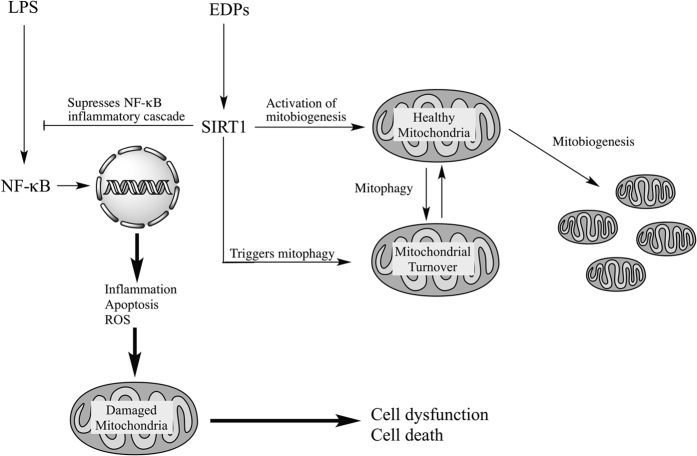Figure 8.
Schematic showing activation of SIRT1 activity by EDPs is required to exert protective effects. LPS exposure activates a NF-κB-dependent inflammatory response triggering extensive mitochondrial injury with associated decreased quality control. Subsequently, the compromised mitochondria rapidly promote cell dysfunction and cell death. EDPs act as positive and possibly, selective modulators of SIRT1 activity, through yet to be identified molecular mechanisms, initiating important adaptive responses. SIRT1 can (i) act as a potent suppressor of NF-κB; (ii) rapidly and potently activate mitobiogenesis; and (iii) selectively eliminate damaged mitochondria via mitophagy. EDP-mediated activation of SIRT1 signaling promotes physiological events that enhance mitochondrial quality control. Thus, preserving a healthy and optimally functioning pool of mitochondria, which protect the cell from LPS-induced toxicity.

